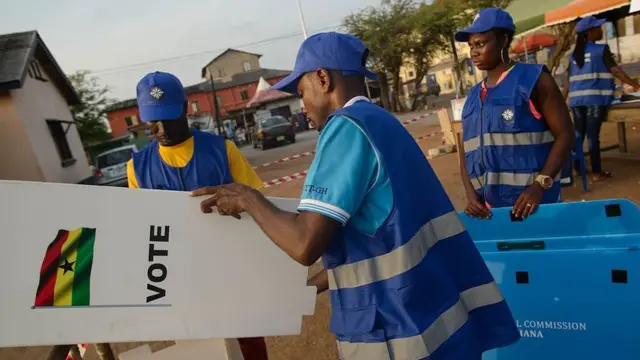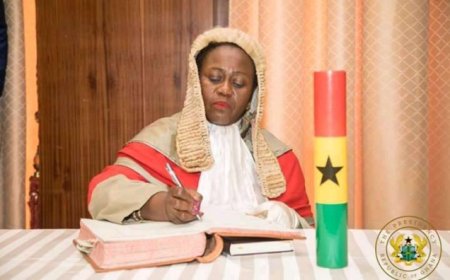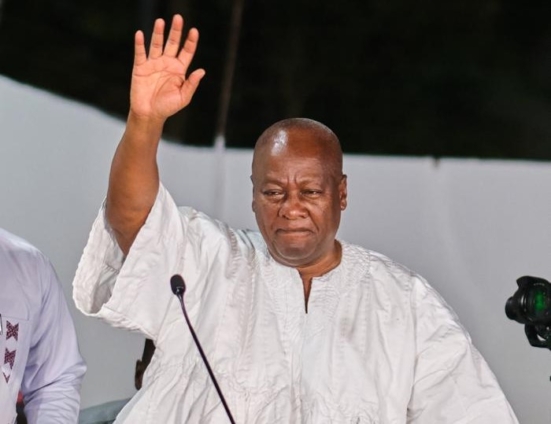Election 2024: Real lives, real people

On International Youth Day, the National Democratic Congress (NDC) released its youth manifesto. Typically, the political parties release just one manifesto covering all sectors and persons including the youth.
It was therefore a unique way, especially on International Youth Day, to demonstrate the party’s commitment to addressing the pinch points of Ghanaian youth. The party has since announced the launch of its main manifesto on August 24, 2024.
I have spent time since the launch reading the twenty-page document. As I wrote earlier this week, party manifestos are social contracts. This is the NDC’s promised social contract with the youth should they win the upcoming election. The manifesto proposes several policy and programme ideas aimed at addressing the many pinch points it believes the young people of Ghana are facing.
I do anticipate that when their main opponents, the New Patriotic Party (NPP), release their manifesto on August 18, there will be policy and programme ideas aimed at the youth. Again, it will serve as their promised social contract with the youth should they win the election.
Post the release of NDC’s youth manifesto, the partisan engagement has been intriguing to observe. That is to be expected. It is an election year where partisans engage in demonstrating superiority of their policies and the inferiority of their opponent’s.
But in doing so, we must be guided by a recognition that there are real lives and real people (the youth) who are feeling some major pinch points and are looking for assurances from our political parties as to how those pinch points will be addressed.
To appreciate why I believe the discourse about targeted policies and programmes aimed at the youth must be elevated, below are selected highlights of some of the pinch points they express feeling as per findings of the Afrobarometer survey. More importantly, I show how their sentiments have changed under this government by comparing Afrobarometer Round 7(2017) to Afrobarometer Round 9(2022). The most recent Afrobarometer survey was conducted in 2022 which means the sentiments since then have probably changed. The only thing unknown at this point is whether they have changed in a positive or negative direction.
What is the youth expressing?
- In 2017, 57 per cent of the youth felt the country was going in the right direction compared to 11% in 2022.
2. In 2017, 49 per cent of the youth rated government’s job creation efforts well compared to 14% in 2022.
3. In 2017, 71 per cent of the youth rated government’s management of the economy well compared to 16% in 2022.
4. In 2017, 68 per cent of the youth rated government efforts to improve basic health services well compared to 44% in 2022.
5. In 2017, 82 per cent of the youth rated government efforts in addressing education needs well compared to 39% in 2022.
6. In 2017, 56 per cent of the youth rated government efforts to improve the living standards of the poor well compared to 14% in 2022.
7. In 2017, 44 per cent of the youth rated their living conditions well compared to 23% in 2022.
8. In 2017, 23 per cent of the youth perceived the level of corruption as having increased “a lot” compared to 71% in 2022.
9. In 2017, 80 per cent of the youth expressed optimism about the country’s future economic conditions compared to 26% in 2022.
10. In 2017, 80 per cent of the youth approved of the president’s job performance compared to 26% in 2022.
Undoubtedly, the youth are feeling some major social and economic pinch points which require solutions. And it is even more urgent now because of the shifts in their political dispositions. In 2017, 77 per cent expressed satisfaction with the way democracy was working in Ghana compared to 50 per cent in 2022.
The saving grace for the country is that the youth (76%) still prefer democracy to any other form of government with another 84 per cent saying the country’s leaders must be chosen through elections.
Lesson for the 2024 elections
The beginning of the week marked the celebration of International Youth Day. On this day, the world focuses attention on its youth – their hopes, and aspirations but also the many political, social and economic challenges they face. It is a day when we renew our commitments and assure them of a brighter future.
As our political parties, especially NPP and NDC, continue to make their case to young voters, it is my hope that their political discourse is guided by the imperatives of why we celebrate the day.
Doing so means in evaluating and critiquing competing policy and programme ideas aimed at the youth, there should be no place for misinformation, disinformation, and policy distortions, no matter how strong the political incentives are.
It cannot be politics as usual, for there are real lives and real people at stake in this election.
Source: Lead News Online
Dr John Osae-Kwapong
The writer is the Project Director, Democracy Project























































